What Is Portable Oxygen Concentrator?
What Is Portable Oxygen Concentrator?
Portable Oxygen Concentrator: A Breath of Fresh Air for Active Lives
For people with chronic respiratory conditions like COPD, emphysema, or sleep apnea, supplemental oxygen is often a necessity. An oxygen concentrator is a device that delivers supplemental oxygen to people who require it.
For decades, managing chronic respiratory conditions often meant relying on bulky, stationary oxygen concentrators. These devices, while effective, limited mobility due to their size and weight. In most cases, they could deliver continuous oxygen flows, but they restricted patients to their homes or immediate surroundings.
Thankfully, the last decade has ushered in a new era of freedom with the arrival of portable oxygen concentrators (POCs). These revolutionary devices are a turning point for those with conditions like COPD, emphysema, or sleep apnea. POCs are significantly lighter, some weighing as little as 5 pounds! This newfound portability allows users to maintain an active lifestyle and participate in daily activities that were previously limited by traditional bulky oxygen tanks.
How Does A POC Work?
POCs work by filtering the air (which is about 21% oxygen) around them, separating the nitrogen from the oxygen. The concentrated oxygen (usually over 90%) is then delivered to the user through a nasal cannula.
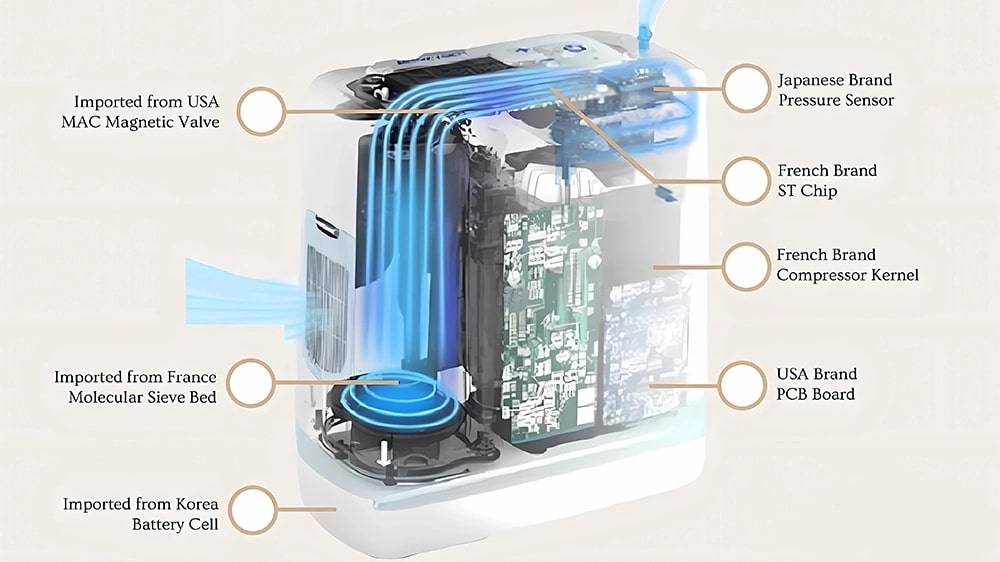
Who Will Need POCs?
Portable oxygen concentrators are used by people with a variety of respiratory conditions, including:
- Chronic obstructive pulmonary disease (COPD)
- Emphysema
- Bronchitis
- Pulmonary fibrosis
- Sleep apnea
Applications:
Portable oxygen concentrators are ideal for individuals who require supplemental oxygen but desire an active lifestyle. They offer:
- Freedom of movement: Unlike tanks, POCs are lightweight and portable, allowing users to participate in daily activities like running errands, socializing, or traveling.
- Improved quality of life: The increased mobility and independence provided by POCs can significantly enhance a person's well-being.
- Convenience: No more refilling bulky tanks! POCs are rechargeable with battery power or AC power.
Types:
There are two main types of POCs based on their oxygen delivery method:
- Continuous Flow POCs: These models deliver a steady stream of oxygen at a set flow rate, measured in liters per minute (LPM). They are suitable for people with constant oxygen needs.
- Pulse Dose POCs: These models deliver oxygen in bursts triggered by your inhalation, measured in milliliters per breath (ml/breath). They are lighter, quieter, and more energy-efficient than continuous flow models, but may not be suitable for everyone (especially those with shallow or irregular breathing).
Benefits of Portable Oxygen Concentrators:
- Portability: They are significantly lighter and more compact than traditional oxygen tanks and bulky stationary oxygen concentrators, allowing for greater freedom of movement and participation in daily activities.
- Convenience: No need to refill bulky tanks, as they are rechargeable with battery power or AC power, even vehicle DC power.
- Improved Quality of Life: Increased mobility and independence for users who require supplemental oxygen.
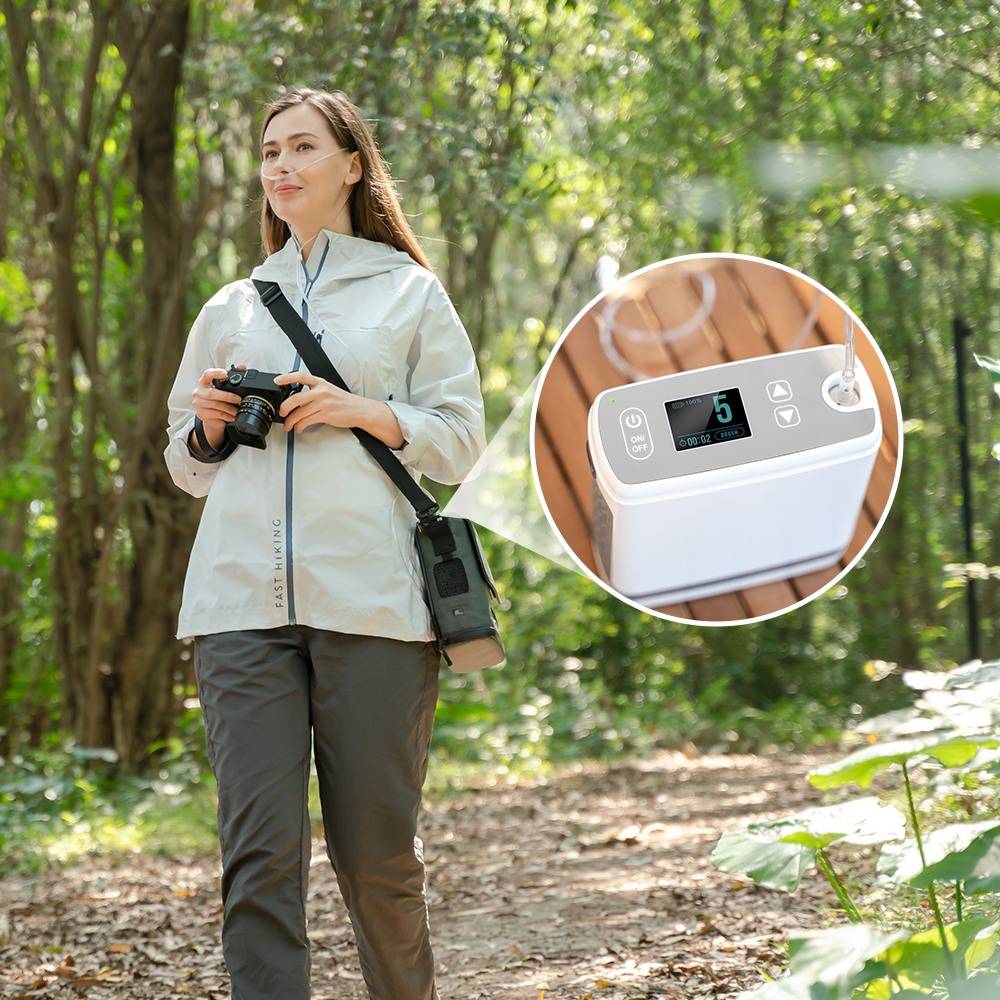
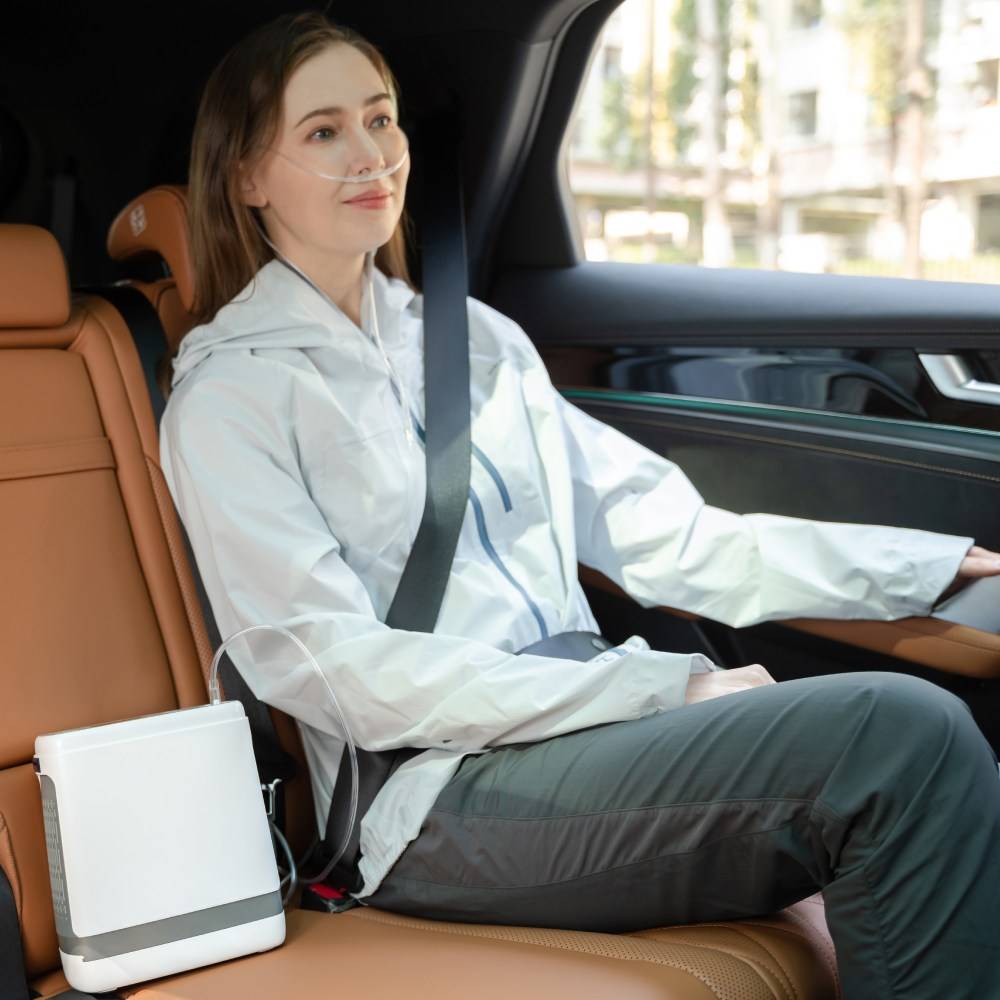
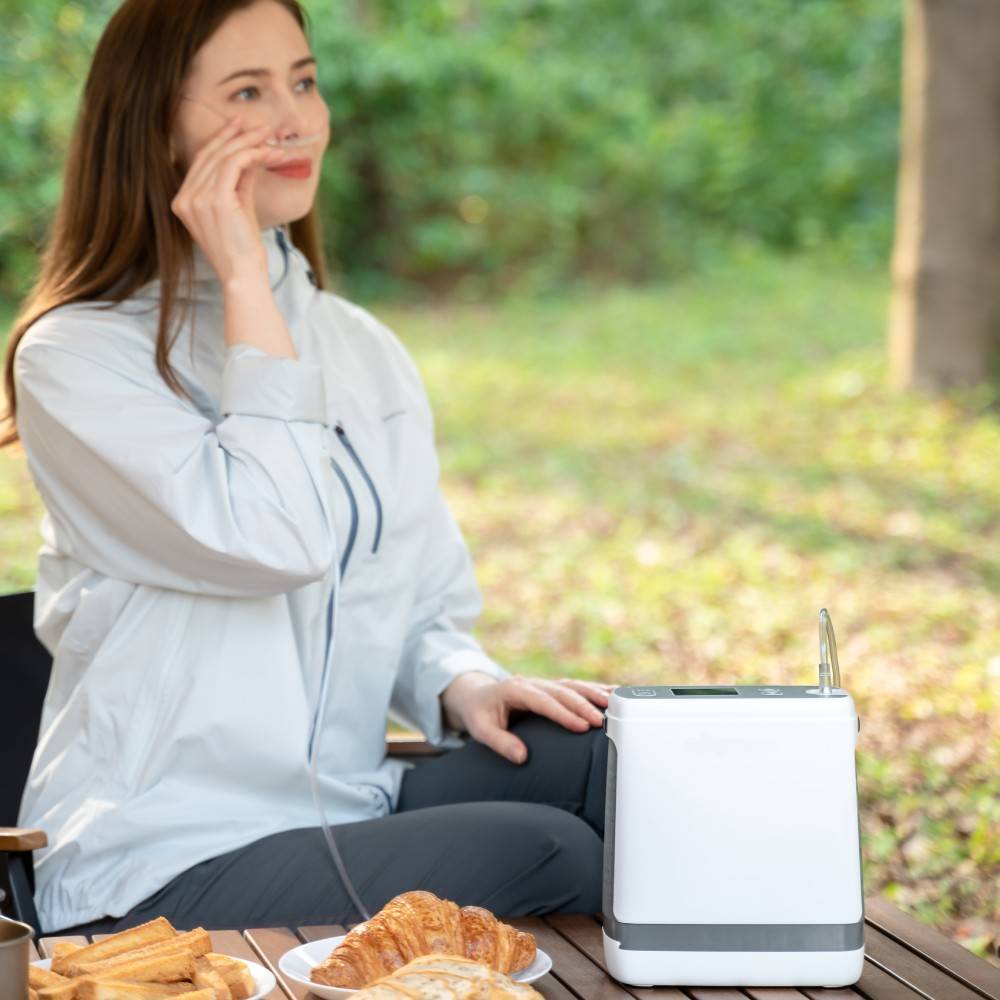
Choosing a POC:
If you are considering using a portable oxygen concentrator, it is important to talk to your doctor. They can help you determine if a POC is right for you and recommend the type of POC that will best meet your needs.
Here are some things to consider when choosing a POC:
- Size and weight: Portable oxygen concentrators come in a variety of sizes and weights. Consider how much you are able to carry and how active you are.
- Battery life: The battery life of a POC will vary depending on the model and the flow settings you use. Be sure to choose a POC that has a battery life that will meet your needs.
- Noise level: Some POCs are quieter than others. If noise is a concern for you, be sure to ask about the noise level of the POC you are considering.
- Oxygen flow rate: The oxygen flow rate is the amount of oxygen that the POC delivers per minute. Your doctor will determine the oxygen flow rate that is right for you.
- Breathing patterns: Consider your oxygen requirements and breathing patterns.
- Additional features: Some POCs offer alarms, carry bags, or other features that might be beneficial.
Things to Consider:
Portable oxygen concentrators are a great way to maintain an active lifestyle if you require supplemental oxygen therapy. However, there are a few things to keep in mind:
- Portable oxygen concentrators can be expensive.
- Portable oxygen concentrators may not be covered by insurance.
If you are considering using a portable oxygen concentrator, be sure to talk to your doctor about the benefits and risks.

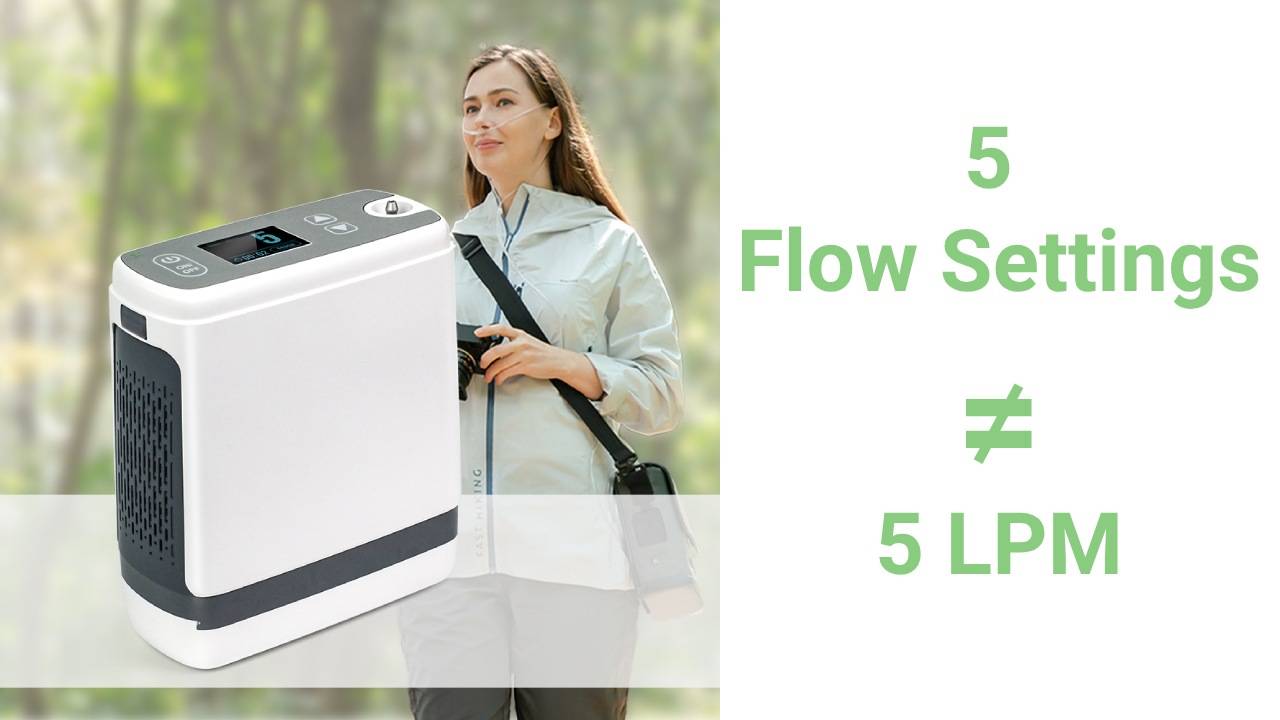
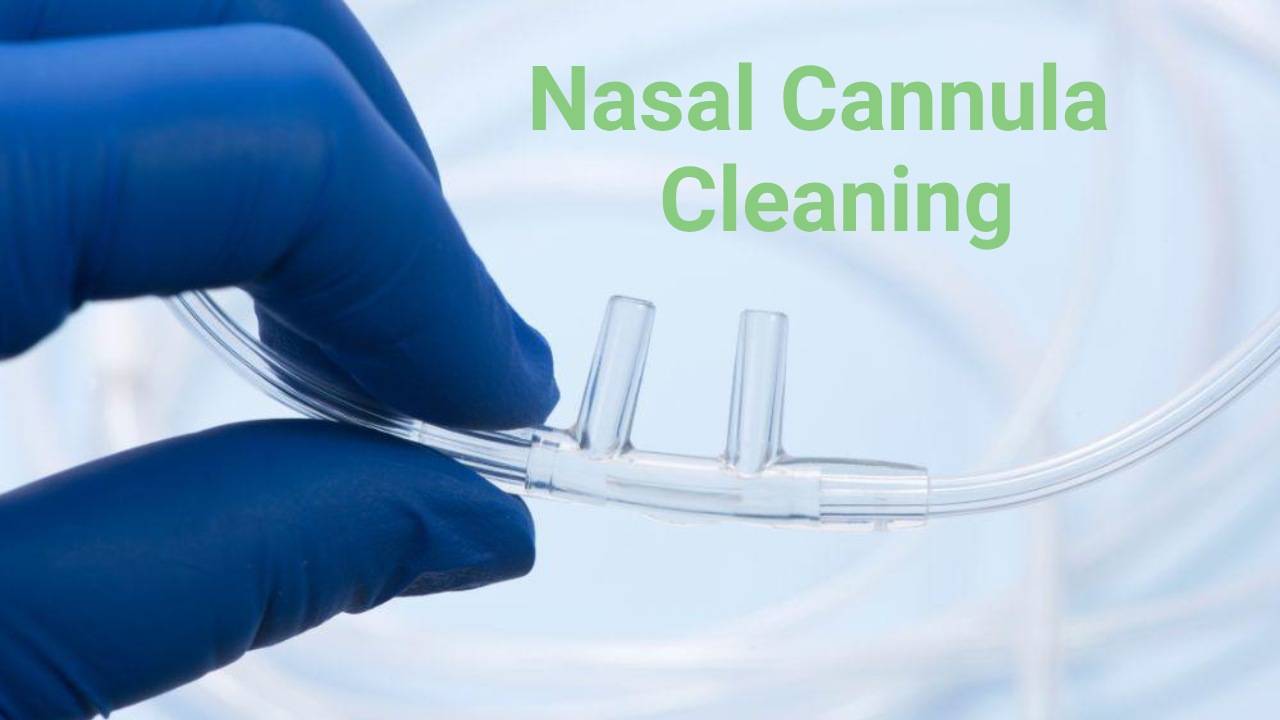
Instead
darkmarkets deep web drug url tor markets links
darkmarket 2024 tor dark web darknet links
Can you use this 24 seven